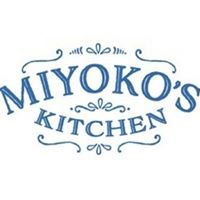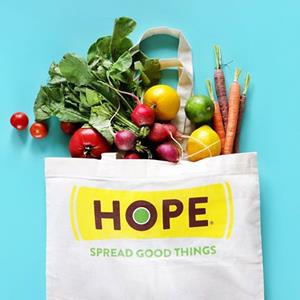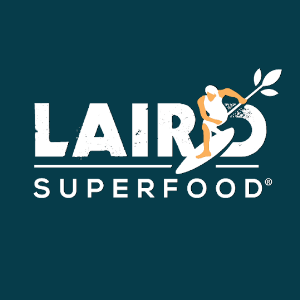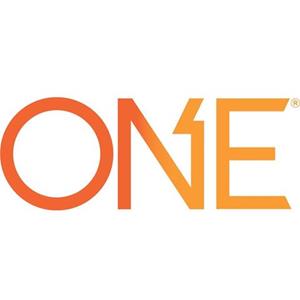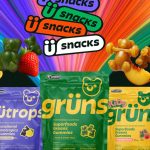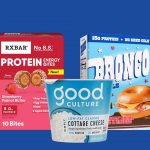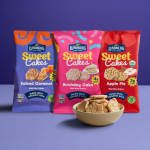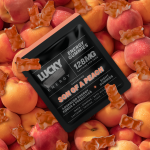Expo West 2023: Fatso Finds New Owners; UmYum Plans for U.S. Expansion
Fatso Sold to Food Production Company G.E. Barbour Inc.
Victoria, British Columbia-based nut butter brand Fatso has sold to Sussex, New Brunswick-based food production company G.E. Barbour Inc. Terms of the deal, which closed on March 1, were not disclosed.
“The product that I put out in 2016 just really isn’t economically viable for the market in 2023,” said Fatso founder and former owner Jill Van Gyn in a video posted to LinkedIn explaining her departure. “We are selling to some incredible buyers who I believe will be able to accomplish what we set out to do with the company, keep it on shelves, grow it and see the Fatso name carry on throughout North America.”
Founded in 2016, Fatso produces a line of all-natural nut and seed butters featuring plant-based superfats and fibers. Available in three varieties – Maple, Classic and Crunchy Salted Caramel – the products are sold online for $39.99 per 3-pack of 18 oz. jars as well as at select retailers across the U.S. and Canada.
The product was first introduced in the U.S. via Whole Foods (PNW Oregon and Washington) in 2019, “providing a roadmap to being a well-recognized brand across North America,” according to the brand. At last year’s Expo West, the nut butter brand debuted a complete packaging refresh.
G.E. Barbour Inc., a co packer for nut butters, spices, baking ingredients and other liquid products, was already producing the Fatso line. Regional sales manager Shayne Trewin told NOSH that when the food production company learned that Van Gyn was looking to sell Fatso, they were immediately interested due to their love of the product.
Looking ahead, G.E. Barbour is currently choosing to focus on retail expansion rather than product expansion. Trewin said Fatso will look to expand its retail presence across the U.S., specifically focusing on the central and eastern regions.
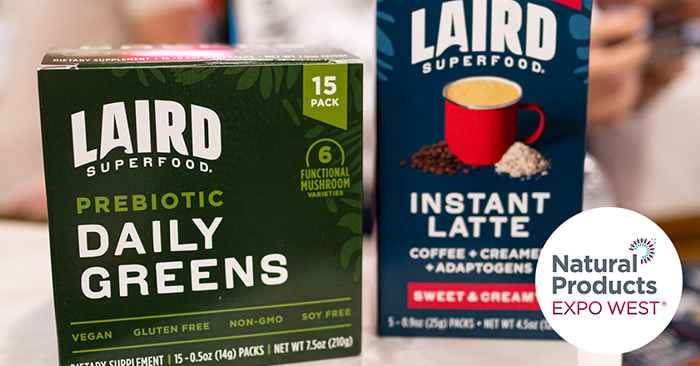
Laird Superfood Unveils Revamped Packaging, New SKUs
Sisters, Oregon-based Laird Superfood unveiled a bold new look with an eye-catching, surfer-inspired booth in the Main Hall.
The brand’s new packaging traded in photos of founder and pro surfer Laird Hamilton riding the waves for a simple navy background accented by various red leaves. Laird’s logo has been upgraded to a simple bold font featuring a subtle wave shape under the “A”.
According to Hamilton, the packaging was created to better reflect the brand’s passion for its consumers and deliver on its mission to “take one thing you do every day and make it better.”
In conjunction with the rebrand, Laird Superfood expanded its broad portfolio of products with the addition of two new single-serve products: Sweet and Creamy Latte with Adaptogens and Prebiotic Daily Greens. The former combines a freeze-dried coffee blend with coconut-based creamer and a functional mushroom blend while the latter is a relaunched product that features a full serving of fruits and vegetables, prebiotic fiber and adaptogens.
Additionally, the brand reformulated its existing Instant Latte line to include adaptogens and functional mushroom extracts.
The new product launches come after Laird announced in October it was closing its facility in Oregon and outsourcing the manufacturing of its hydration products and powdered creamers. Executives told NOSH at Expo West that the company plans to focus on coffee, creamers and other functional beverages.
UmYum Foods Plans For U.S. Debut
At Expo West, Canadian plant-based food tech entity UmYum Foods highlighted its lineup of cashew-based dairy analogs in the U.S. for the first time since launching in early 2021. The brand produces a range of artisan, fermented vegan cheeses produced with traditional cheesemaking practices, as well as complementary cashew-based offerings such as milk chocolate, butter and puff pastry.
UmYum’s Camembert analog, dubbed Monroe, is available for a suggested retail price of $11.99 per 150 gram wheel and contains cashews, water, salt, vegan bacterial cultures, vegan penicillium candidum and vegan lactic acid. The brand uses various iterations of the fermented cashew base for its butter (SRP $7.49) and chocolate (SRP $5.99) products and also offers a range of flavored cheeses including garlic, truffle and herb.
According to co-founder and CEO Katherine Cordon, the company uses a species of cashew sourced from Senegal that is extremely high in protein. This cashew’s attributes allowed the brand to create products with a low ingredient list and avoid common additives in plant-based products like starches and oils.
Cordon said the brand also hopes to participate in some education about cashews stating that they are often classified as a nut; however,they are more closely related to legumes and seeds, meaning food allergen concerns can be something of a gray area. Additionally, due to the specific variety of cashews used in the product, Cordon said most individuals with nut allergies will not be affected by this product.
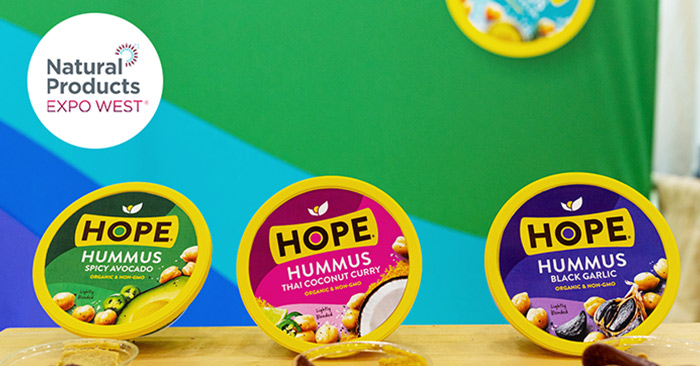
Hope Foods Announces Plastic Neutral Certification, Continues Mental Health Awareness Effort
At the show, Colorado-based Hope Foods announced that its entire lineup of plant-based dips and spreads has been Plastic Neutral Certified. According to a brand spokesperson, Hope Foods is the first dip brand to achieve this certification.
As well, the brand has partnered with the plastic action program rePurpose Global to “remove and properly process nature-bound plastic. Its project participation focuses on the impact project Neela Sapana in Chennai, India, which funds the co-processing of multi-layered plastic that often goes uncollected in India due to the fact it has no commercial value.
Though the plant-based company was acquired by SAVENCIA Fromage & Dairy in 2021, it has continued its mission to raise awareness surrounding mental health. Hope’s website features a “Manifesting Hope” section that provides emotional well-being tools curated by a nutrition coach and mental health first responders. At the show, in addition to sampling its products, Hope Foods handed out branded Calm Strips, a textured sensory sticker designed to help soothe anxiety.
Miyoko Argues For Open-Sourced Tech And Regional, Diverse Food System During Food Order Keynote
During a keynote presentation on Friday morning, a cohort of sustainable food-focused industry leaders sat down for a conversation about the macroeconomic challenges to creating a sustainable and diverse “food order” under the current system, and ideas about whether the world needs, and can establish, a better way forward.
The group – consisting of Miyoko Schinner, Miyoko’s Creamery founder and former CEO; Sujala Balaji, Rainfed Foods founder and CEO, and Olivia Sanchez-Castro, Danone North America’s VP of marketing for plant-based beverages – discussed topics ranging from hypothetical questions like the possibility of reconstructing the food system status quo to more concrete concepts like the impact economies of scale have had on dairy farmers in the Northeast.
The discussion was moderated by Danielle Gould, Tech+Connect founder and CEO, and Louisa Burwood-Taylor, Head of Media and Research at AgFunder. Schinner in particular emphasized the full scope of the current systems problems and proposed solutions, and alongside Balaji, argued that plant-based analogs and more sustainable products are not enough.
“We do have this climate crisis and it’s not just a matter of buying a product,” Schinner stated. “The product itself may not be the solution, but it may be [part of] an entire education about lifestyle that can get people to make small changes at home.”
In Schinner’s view, promoting the viability of small, regional food makers is a large part of the solution as well, though even she is skeptical about whether this is possible. Rather than scaling a business to grow as quickly as possible and sell to a large conglomerate, Schinner believes that businesses should share their technology.
For example, Schinner said the vegan cheese cookbook she released prior to starting her creamery business has helped numerous entrepreneurs around the world to begin crafting their own vegan cheese iterations. She then posed the idea that it would be more beneficial to the food system’s longevity if there were thousands of little companies everywhere “rather than just a handful that you can only buy through supermarkets.”
“How can we create an economy like that?,” Schinner questioned. “[Right now], if I win, but you lose, then we all lose. [And] it’s no longer interesting to travel across the United States because you see the same big brands everywhere. There’s no difference whether you’re in California or North Carolina, it’s all the same. And it’s not what we want for the future… it is depriving people of ownership of their own futures of their own enterprises.”
Hershey’s Expands Salty Snacks, Plant-Based Chocolates
The Hershey Company is deepening its investment in dairy-free options and innovating its salty snacks portfolio, a company representative told NOSH at Expo West last week.
Today, its snacking portfolio is worth over $1 billion in volume but the company is planning to hit $3 billion within the next 10 years, said Jeff Lilla, VP of sales for salty snacks at Hershey’s. “The vision of the company is not ‘leading confection company,’ it’s ‘leading snacking powerhouse.’”
At Expo West the company highlighted several new products aimed at contributing to this revenue goal. In February, the company launched a line extension to the Pirate’s Booty brand with an extra crunchy variety of the rice and corn kid’s puffed snack called Crunch Attack! Hershey has also recently expanded its ONE protein bar plant-protein line PLANT now offering three varieties: Churro, Chocolate Cookie Dough and Banana Nut Bread.
The confection maker also announced an expansion of its dairy-free chocolate options that will be hitting shelves in the coming weeks. Reese’s Plant Based Peanut Butter Cups and Hershey’s Plant Based Extra Creamy with Almonds and Sea Salt both use oat milk instead of conventional milk and lean into the company’s research data that consumers are demanding more dairy-free options.
The Pennsylvania-based chocolate maker bought Amplify Snack Brands in 2017 and has since made a series of acquisitions to strengthen that position – buying Pirate’s Booty from B&G in 2018, ONE Bar in 2019 and Dot’s Homestyle Pretzels in November 2021 – as part of a strategy to expand beyond chocolates and candy into more snacking occasions; a decision that became official in February 2022 when the company divided its North America segment into two reportable divisions: Confections and Salty Snacks segments.
The strategic move was driven by consumers asking for healthier alternatives to familiar snacks and confections. Lilla pointed to the acquisition of gluten-free, no added-sugar confection company Lily’s in 2021 as a perfect example of Hershey’s “holistic” approach to providing more better-for-you options to its portfolio. When asked if Hershey’s is eyeing any new acquisitions, Lilla said that the company is looking to both continue to innovate within as well as expand its portfolio in the “permissible snacking” category.
“In order to go from 1 billion to 3 billion, it’s going to take a little bit of both,” he said. “We’re continuously looking at it to say, what’s the next area we need to evolve in. There’s a salty focus and there’s definitely a confection focus.”

